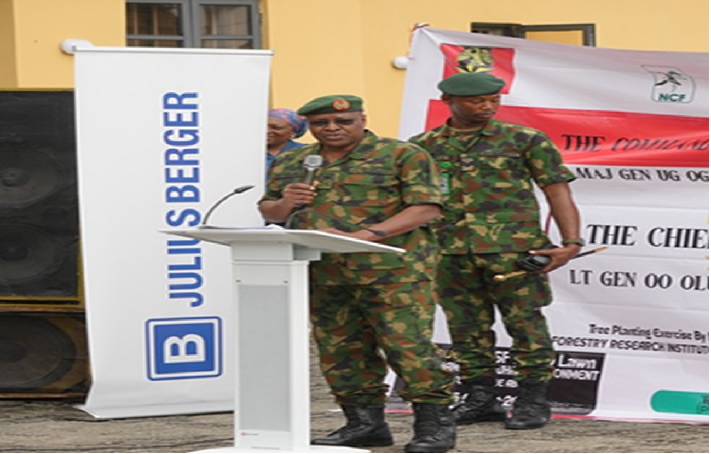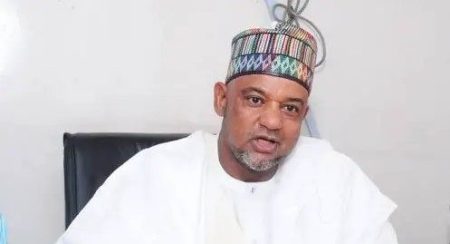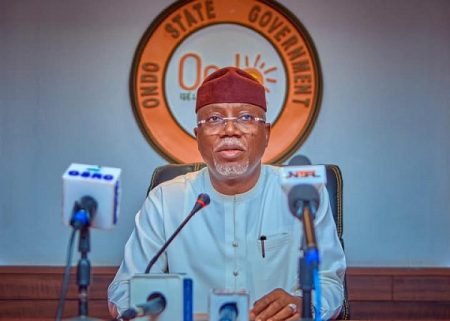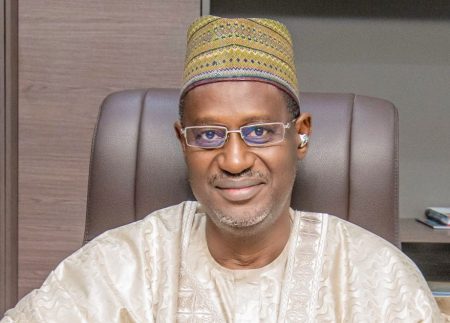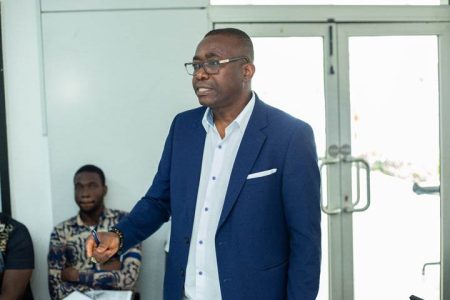Julius Berger Nigeria Plc, a leading construction company, spearheaded a significant reforestation initiative at the Muhammadu Buhari Cantonment in Abuja, underscoring the growing recognition of the interconnectedness between environmental sustainability and national security. Partnering with the Forest Research Institute of Nigeria (FRIN), the Forestry Research Institute of Nigeria, and the Nigerian Conservation Foundation (NCF), the company orchestrated the planting of over 20,000 indigenous tree seedlings. This collaborative effort represents a substantial contribution to Nigeria’s ongoing battle against deforestation, climate change, and the alarming loss of biodiversity. The initiative showcases Julius Berger’s commitment to environmental stewardship and sustainable development, setting a precedent for corporate engagement in ecological preservation.
The collaborative nature of the project ensured a multi-faceted approach to reforestation. FRIN provided crucial technical expertise, carefully selecting suitable indigenous tree species based on ecological considerations specific to the region. NCF, with its extensive experience in conservation and community engagement, played a vital role in ensuring the project’s long-term success by fostering local ownership and participation. Julius Berger’s financial backing and coordination efforts were instrumental in bringing the project to fruition, demonstrating the company’s dedication to translating environmental responsibility into tangible action. This synergistic partnership effectively combined scientific knowledge, community involvement, and corporate resources to maximize the project’s impact.
The tree planting exercise was not merely an environmental endeavor; it was recognized as a strategic imperative for national security. J.Y. Maina, representing the Chief of Army Staff, highlighted the profound link between environmental degradation and national stability, emphasizing that climate change, desertification, and environmental damage pose significant long-term threats to Nigeria’s security. The event underscored the growing awareness that environmental protection is not simply an ecological necessity, but an integral component of safeguarding a nation’s future. The collaborative effort between the military, government institutions, and the private sector exemplified a strategic approach to sustainable development, showcasing the potential for collective action in tackling complex challenges.
The Nigerian Conservation Foundation (NCF) played a critical role in the initiative, bringing its expertise in biodiversity conservation and sustainable development to the forefront. Garba Boyi, representing the NCF Director-General, highlighted the organization’s “Green Recovery Nigeria” initiative, a program designed to address the alarming decline in Nigeria’s vegetation cover. With less than 10% of the nation’s original vegetation remaining, the NCF’s efforts to plant trees and restore ecosystems are crucial in mitigating the impacts of deforestation and promoting ecological resilience. The partnership with Julius Berger and other stakeholders allowed the NCF to expand its reach and contribute meaningfully to national reforestation efforts.
The reforestation initiative at the Muhammadu Buhari Cantonment serves as a model for future collaborations between corporations, government agencies, and NGOs. By pooling resources, expertise, and shared vision, these partnerships can effectively address critical environmental challenges. Julius Berger’s financial support and coordination played a crucial role in the project’s success, demonstrating the potential for private sector engagement in driving sustainable development. The collaborative effort signifies a growing awareness of the importance of environmental stewardship in Nigeria and highlights the potential for collective action to create a more sustainable future.
The planting of 20,000 indigenous tree seedlings represents a significant step forward in Nigeria’s efforts to combat deforestation, climate change, and biodiversity loss. However, it is crucial to recognize that this is just one piece of a much larger puzzle. Long-term success hinges on continued collaboration, ongoing monitoring, and a sustained commitment to environmental protection. The involvement of local communities is also essential to ensure the long-term survival of the newly planted trees and to foster a sense of ownership and responsibility for the restored ecosystems. The Muhammadu Buhari Cantonment reforestation project serves as a powerful example of the potential for collective action to create a more sustainable and resilient future for Nigeria.





